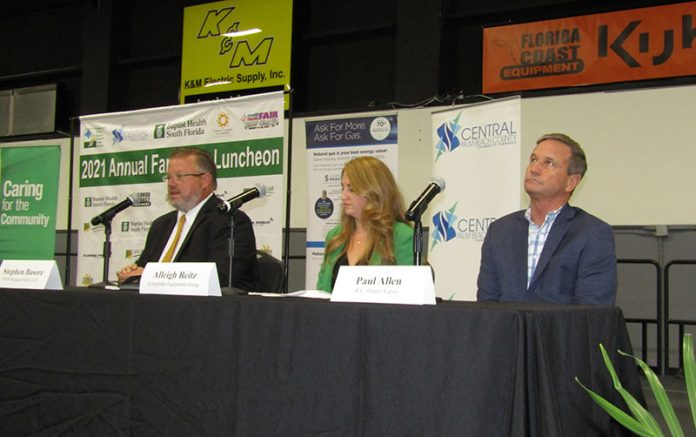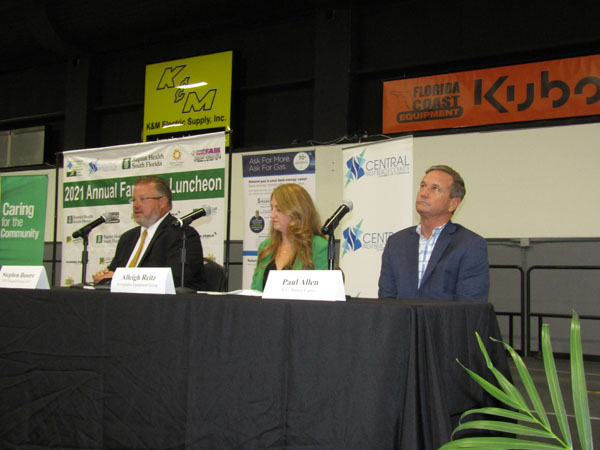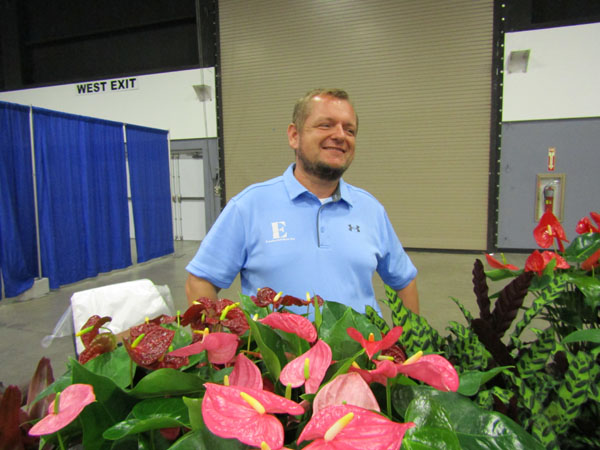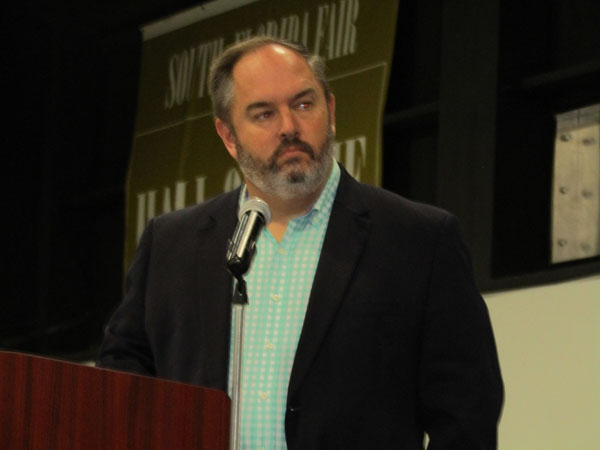
The annual Farm City Luncheon at the South Florida Fairgrounds Expo Center on Wednesday, Nov. 17, sponsored by the Central Palm Beach County Chamber of Commerce, focused on the vulnerability of farmers despite agriculture being one of the three largest industries in the county.
Moderator Keith Wedgworth, vice president of Wedgworth Farms, and panelists Alleigh Reitz of the Everglades Equipment Group, Stephen Basore of TKM Bengard Farms, and Paul Allen of R.C. Hatton, Performance Packaging and Performance NAPA, are all fourth-generation farmers.
“All of the panelists I would consider friends, and I’m honored to be up here sharing the stage with them,” Wedgworth said.
He urged the audience to look for the “Fresh from Florida” label on produce while shopping.
Allen said the farm he works with is a fourth-generation farm, but his father’s farm was wiped out during the 1977 freeze when it snowed in South Florida.
“My family lost everything we had, so I was hesitant to get involved again, but I did,” he said, adding that most of his family still works in agriculture.
Asked how COVID-19 has affected his business and industry, Basore said the pandemic hit agriculture severely with the closing of the tourist and hospitality industry.
“Our company, we were fortunate enough to have a retail business, grocery store chains and people were still going into the stores, and they were panic buying and basically cleaning off all the shelves,” he recalled. “The grocery store business had its best week followed by its best week because then everyone stayed at home. At that time, many of our sales stopped.”
In conjunction with other farmers and local food distribution centers, Basore has helped get needed food to residents, he added.
Reitz said COVID-19 has affected the farm equipment business just like every other business, especially in the parts supply aspect.
“If the steering wheel isn’t there, they can’t ship it,” she said, adding that the company’s sales team has done a good job of anticipating what their customers are going to need and ordering ahead of time.
Asked about the influence of imported produce on local agriculture, Allen said there were 80 tomato growers in Florida 25 years ago, and now there are seven or eight.
“We see when the influx comes in from Mexico, our prices deflate to nothing,” he said, explaining that Mexico’s production costs are so low that they can ship their product to New York cheaper than it costs for Florida farmers to grow it.
He reiterated the earlier comment to look for “Fresh from Florida” labels on produce to support the local industry.
Basore explained that his business has changed since the advent of COVID-19 in that people have become aware that farmers are essential.
“There was this feeling of food insecurity,” he said. “There was this concern about, ‘Where am I going to get my food from?’” he said. “Luckily, for people who live in Palm Beach County, there are many amazing farmers here, and COVID-19 happened during our growing season.”
Basore believes that people’s interest has been raised as to where their food comes from.
“That level of interest is really great for our business, so we’re hopeful that that will continue into the future,” he said.
Allen said that he has seen the perils of farming firsthand, from that deep freeze in 1977 to COVID-19 issues today.
“There’s less and less next generation people who want to farm because it’s difficult,” he said. “It’s trying mentally, physically and emotionally. You could be there one night, and there could be a freeze. I’ve experienced it firsthand. I’ve seen the perils of farming.”















